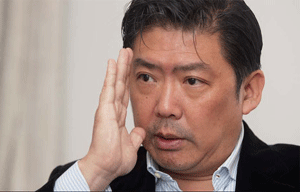Obama seeks to tap anti-Wall St anger
Updated: 2011-10-17 15:04
(Agencies)
|
|||||||||
WASHINGTON - President Barack Obama will seek to tap into public anger at Wall Street excess to turn up the heat on congressional Republicans as he embarks on a campaign-style bus tour on Monday to rally support for his stalled jobs package.
Hitting the road for the next three days, Obama heads to North Carolina and Virginia, both vital to his 2012 re-election chances, with an increasingly populist approach aimed at winning passage of at least parts of his $447 billion jobs plan.
His visits to two pivotal Southern states come against the backdrop of protests against corporate greed and economic inequality that began weeks ago in New York and have spread to other cities, inspiring global "Day of Rage" demonstrations against the world financial system over the weekend.
Obama - whose poll numbers have fallen over his handling of the stagnant economy and high unemployment - has voiced sympathy with the grievances of the "Occupy Wall Street" movement but has done so cautiously, not least because of his own economic team's ties to the financial industry.
"The president will continue to acknowledge the frustration that he himself shares about the need for Washington to do more to support our economic recovery and to ensure that the interest of the 99 percent of Americans is well-represented," spokesman Josh Earnest said when asked whether Obama would offer a message for Wall Street protesters on his trip south.
The Democratic president wants to step up the pressure on Republicans as he tries to push through his jobs package piece by piece, starting this week after his full plan went down to defeat in Congress last week.
With election races looming, Obama's strategy is to force Republicans to give ground or be painted as obstructionists more interested in shielding "millionaires and billionaires" -- "the 1 percent" -- from paying their fair share of taxes.
Republicans say Obama's original package was laden with wasteful spending and job-killing tax hikes for wealthy Americans. They have accused him of demonizing them and promoting "class warfare" instead of working with them to find areas of agreement.
In the Republicans' weekend radio address, Representative Kevin McCarthy urged Obama to "come off the campaign trail and get to work."
The deadlock over the jobs bill has raised concerns that political dysfunction in Washington will prevent any major steps to spur hiring before the November 2012 elections.
Political overtones
The White House has billed Obama's trip - his second trek through small-town America in a new sleek armored bus since he toured the rural Midwest in August - as a chance to reconnect with ordinary citizens outside the Washington "bubble."
While Obama's aides insist his journey is about jobs, not politics, his itinerary takes in two traditionally conservative states he won in the 2008 presidential election but which polls show he is in danger of losing in his bid for a second term.
The broader message, Earnest said, will be for Republicans to "put country before party" and pass the first part of his package in the Senate this week - $35 billion in aid to states to preserve the jobs of teachers, police and firefighters.
Republicans have showed little enthusiasm for the proposal, though they have not rejected all of his ideas.
Polls show taxing the rich resonates not only with anti-Wall Street protesters but with many middle-class voters struggling to stay afloat financially in a difficult economy.
But if Obama goes too far in his populist rhetoric he risks further damage to already-frayed relations with Big Business and might also scare away some moderate independent voters.
On top of that, some of the protesters' ire has been directed at Obama's own policies, notably his administration's bailout of troubled banks early in his term.
Obama, however, is expected to keep up his criticism of Republicans' calls for a rollback of Wall Street reforms he championed but which they see as onerous new regulations.
Obama is still likely to tread carefully until there is a clearer sense of whether the anti-Wall Street movement over the power of financial institutions can sustain momentum. Among the protesters' grievances is that the richest 1 percent of Americans do not pay enough taxes.










